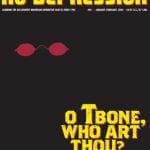Lisa Marr Experiment – Beyond the Vancouver Underground & Neko
If her former life as the queen of cuddlecore taught Lisa Marr anything, it’s that there’s no joy in being pigeonholed. From 1992 to 1997, the Canadian-born bassist toiled in the indie trenches with Cub, a Vancouver trio that started out as incompetent as the Shaggs and ended up landing glowing profiles in magazines like Rolling Stone.
In the beginning, the band relied on its considerable cuteness to hide its shortcomings, sitting cross-legged onstage, tossing out candy between songs, and offering declawed versions of tunes such as Motorhead’s “Killed By Death”. Before long, someone threw out the term cuddlecore, a description that stuck long after the group evolved into a lethal, hook-happy pop combo.
“The whole cuddlecore thing started as a tongue-in-cheek joke, but it became a rock that was attached to our leg, dragging us into the river,” Marr says from her adopted home of Los Angeles. “I understand that people want to know what they are getting with a band; they want something that they can understand in ten seconds or less. I’m not really interested in being one-dimensional, though.”
That’s borne out by the Lisa Marr Experiment, which has just released American Jitters, a genre-jumping follow-up to the group’s eclectic 2000 debut 4 AM. After crawling from the wreckage of Cub (and a subsequent project called Buck), Marr decided she was ready for something different. The only guidelines she set for herself were that there were to be no guidelines.
“I wanted to branch out from the basic guitar, bass and drums pop setup,” she says. “The goal was to do something new. I had a bunch of songs, some of them country, some of them not. What was interesting to me was the idea of combining them all. It’s not about going ‘I’m going to make a record that sounds like George Jones.’ It’s more about taking influences and messing them up with my pop sensibilities.”
Shifting gears with an easygoing effortless, the sixteen tracks on American Jitters jump around from classic country to scrappy college rock to sweet pop to straight-outta-the-’70s MOR. While the band may bear her name, Marr doesn’t go it alone; she shares the songwriting and vocals with multi-instrumentalist Mike Flanagan. Other members are ace pedal steel player Dave Philips and drummer Sherri Solinger.
When the four teamed up for 4 AM, it wasn’t designed to go beyond that record. “I figured I would record my songs with a band, but as a one-off project, hence the name the Lisa Marr Experiment,” she explains. “I had intended to keep things open in terms of who I played with, but we all ended up liking each other so much that we kind of became a group.”
Helping make the shoestring-budget American Jitters sound like a big-budget outing is a small army of guest musicians who were willing to play for love instead of a paycheck. Pulling everything together are producers David Carswell and John Collins of the New Pornographers.
Although the campfire pedal steel, Appalachian banjo, dime-a-dance accordion, and pine-shack fiddle create some of the finest moments on American Jitters, the songs would easily stand on their own if stripped down. Marr, whose twangy vocal inflections sound more sixth-generation southerner than expat Canuck, has always believed the best songs are simple ones, and she doesn’t deviate from that belief here.
If Sheryl Crow spent her days at the loser’s end of Steve Buscemi’s Trees Lounge, she’d be writing straight-up, bittersweet beauties like “Monday Morning, Echo Park”. “Green Expectation” would fit right in on a K-Tel ’70s Pop Gold compilation. “The Boy With The Lou Reed Eyes” sounds like the Donnas kicking out the jams in Big Star’s practice space.
But the Lisa Marr Experiment is at its best when sticking to dusty country backroads, neon-lit honky tonks and tombstone-dotted cemeteries. “Carolina’s Last Ride” captures the classic retro sound of 1960s Nashville. “Niagara, Niagara” is all cornfield banjo and beautifully burnished pedal steel. “The Return Of Donna Lee” is shot through with atmospheric lone-gunslinger guitar work. Given how comfortable Marr sounds in a pair of cowboy boots, it’s surprising that an artist with a pop past has so effortlessly made the transition to roots music.
Or maybe it’s not.
After all, Marr isn’t the first country queen to have done time in Cub. Among those who sat behind the drum kit during the group’s five-year run was a firecracker named Neko Case. (Marr’s song “In California” appears on Case’s recent EP Canadian Amp.)
“I think she’s someone that really surprised everyone that knows her,” Marr says of Case. “Nobody knew that she had that big, beautiful voice inside her. I admire her on so many levels. Would I have guessed that she’d be where she is today in the realm of country? No, but she’s very tenacious, very focused on what she wants, and very dedicated to making sure her vision is realized.”
When it’s suggested that Marr could easily be talking about herself, she laughs but doesn’t necessarily disagree. The one-time queen of cuddlecore is in no danger of being pigeonholed with the Lisa Marr Experiment, and although that doesn’t make life easy, it does make it interesting.
“People have a hard time with the project because it’s too poppy for the country people, and too country for the pop people. I don’t feel like I’m part of any particular group because what I’m doing tends to transcend boundaries and cross over to various camps. It’s always nice to be part of the in-crowd, but I can’t help but feel like I’m sort of outside of it all. At this point, all the matters to me is making work that I’m challenged by, and proud of.”




